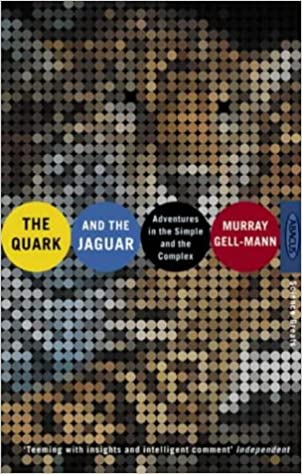
|
Murray Gell-MannThe Quark and the Jaguar134 |
The algorithmic information content of each alternative history of the universe...
The algorithmic information content of each alternative history of the universe evedently receives a tiny contribution from the simple fundamental laws, along with a gigantic contribution from all the quantum accidents that arise along the way. But it is not only the AIC of the universe that is dominated by those accidents. Although they are chance events, their effects contribute heavily to effective complexity as well.
The effective complexity of the universe is the length of a concise description of its regularities. Like the algorithmic information content, the effective complexity receives only a small contribution from the fundamental laws. The rest comes from the numerous regularities resulting from “frozen accidents.” Those are chance events of which the particular outcomes have a multiplicity of long-term consequences, all related by their common ancestry.